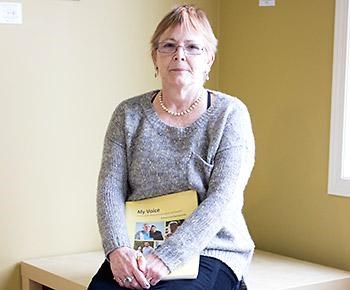Discussions around end-of-life care are not the easiest to have for Canadians, according to a recent national poll. Advocates of advance care planning say that these talks with loved ones and doctors increase overall patient satisfaction and reduce strain on caregivers and family.
Six out of 10 Canadians believe that it is extremely important to talk to someone about their end-of-life preferences, but a Harris/Decima poll indicates that only 45 per cent have done so.
“It appears that while Canadians seem to know that it’s important to talk about end-of-life preferences when they are healthy, they are also quick to find excuses for not doing it,” said Louise Hanvey, project manager for Advance Care Planning in Canada.
Being afraid of death was one of the strongest reasons for Canadians to avoid having the discussion, the poll revealed. Thirty-nine per cent admit to being “creeped out” by the conversation. Other reasons include not wanting to upset family members.
Advance care planning, the process of communicating wishes for end-of-life care and naming a substitute decision maker to speak for an individual if she or he is unable to do so, offers a way to start the conversation.
Research indicates that patients who have end-of-life conversations are much more likely to be satisfied with their care, require few aggressive interventions at the end of life and place less strain on caregivers, said Hanvey.
Data collected in the poll also suggests that Canadians overwhelmingly want their health care providers to provide more information about advance care planning.
Doctors of BC, formerly known as BC Medical Association, has identified this as an area of focus and last month published a policy paper called It’s Time to Talk: Advance Care Planning in British Columbia. The paper supports the idea of physician-initiated advance care planning as a standard of care for all patients regardless of age, life stage or health status.
Jo Ann Murray, health resource navigator at Powell River Division of Family Practice, said locally doctors, who are well-versed in planning, see it as something more people need to know about.
“There’s room for a lot of education around this at the community level,” she said.
Murray said patients with complex health conditions being admitted to Powell River General Hospital are given a planning guide called My Voice: Expressing My Wishes for Future Health Care Treatment. “They may need assistance understanding the document to be able to fill it out for themselves,” she added. “Not everyone here has a family doctor and sitting down to have those conversations can be quite challenging.”
Local physicians agree. Without talking to a doctor about what potentially could be a course of treatment, it might be difficult for people to anticipate what kinds of medical treatment they would want or not want in a given situation.
An example is whether someone would want to be kept alive by feeding tubes or drips it they were unable to swallow and had terminal cancer.
Advance care planning is not necessarily only for those who are facing declining health.
The division recently invited Wallace Robinson, a social worker at St. Paul’s Hospital in Vancouver and forerunning educator on advance care planning, to Powell River and Texada Island to make presentations on the My Voice guide for residents who may not have a family physician or have questions about the planning process.
Identifying values and beliefs around future health care are key. An accompanying worksheet helps people determine how they would want their end-of-life care to be and how long they would like to receive medical care.
As long as someone is capable of understanding and communicating with health care professionals a person is asked to make his or her own decisions. A serious accident or illness, however, could result in someone being incapable of doing so and that is where an advance care plan can provide doctors with a guide to personal preferences around care and treatment.
The representation agreement and the advance directive, once completed with two witnesses, are legally binding and doctors are obligated to follow the outlined wishes.
“Getting a substitute decision– maker is key,” said Murray, who speaks from personal experience. She and her parents developed advance care plans which were an enormous help when her mother was being treated for brain cancer. “Knowing her as well as I do, I was able to make those decisions,” she said. “This is a gift to the family.”
Readers can find the My Voice document online.



